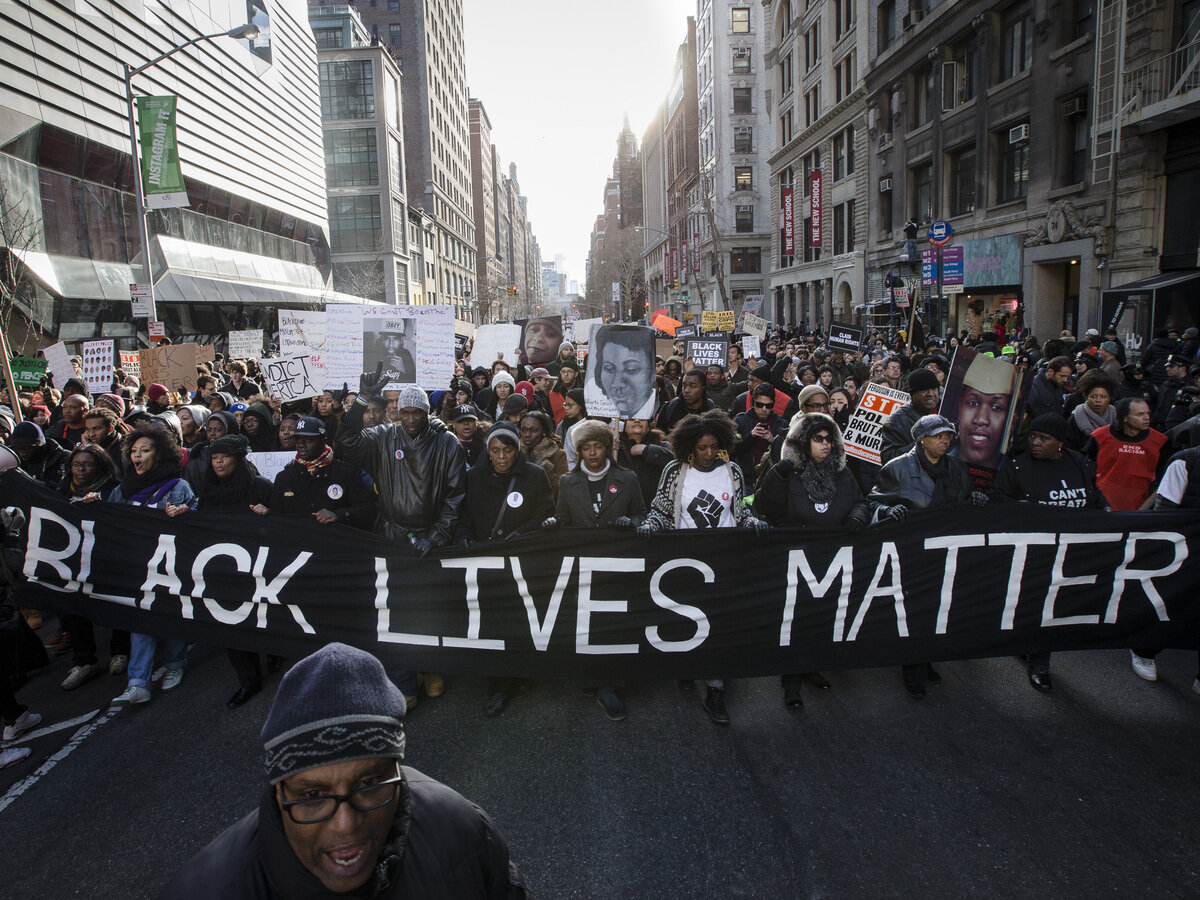Resisting Police Brutality in a Contemporary Dystopia
Knee-on-neck, George Floyd gasped for air, pleading for humanity as air slowly escaped from his body, some of his last words, “I can’t breathe,” etched into the Rosetta Stone of the international political landscape. The police-sanctioned murder of Floyd was not a rarity. As of May 30th, 400 people have been shot and murdered by American police officers in 2020; in 2019, 1004 people were murdered by American police officers; 992 in 2018; 986 in 2017; 962 in 2016; 994 in 2015. American police violence reminds onlookers of a problem, which is so deeply ingrained into the global psyche of both victims and agents of police brutality, that it is rarely discussed.
Racist state-sanctioned violence pervades Canada today. In May 2020, Torontonian Regis Korchinski-Paquet, a Black woman, was shoved off a 24th floor balcony by police, dying upon impact. In the last moments of her life, Korchinski-Paquet begged her mother to save her, with her last words: “Mom, help. Mom, help.” In 2018, 23-year-old Black Montrealer, Nicholas Gibbs, was shot and murdered by police. In 2017, Black Montrealer Pierre Coriolan was shot and murdered by police in response to his behaviour during a mental breakdown. In 2016, Montreal police shot and murdered Black Montrealer Bony Jean-Pierre during a drug bust. In 2019, Société de transport (STM) inspectors tackled and beat a Black metro passenger for dribbling a basketball. The merciless violence imposed on Black citizens is also pervasive in France. In 2017, a black man was beaten and raped by Paris police. In 2007, Black 25-year-old Lamine Dieng was murdered during his arrest by Paris police.
Serious action to combat the disease of anti-Black police violence is rare. Valuing Target tchotchkes over human life, US President Trump tweeted on Friday, May 29th: “when the looting starts, the shooting starts.” Furthermore, the US President has not announced any planned action against the issue, which appears to be an increasing staple of American life. Canadian Prime Minister Justin Trudeau has not commented on the rampant racist violence of Canadian police, instead redirecting public focus on its prevalence in the United States.
The origin of murderous police is challenging to directly pinpoint. In many ways, one might consider the infamous 1971 Stanford Prison Experiment. During the study, a team of psychologists created a mock prison in which college students were assigned one of two roles: prisoners and guards. Soon after adopting their positions, prisoners “totally obey[ed] the demeaning orders of the guards (...) powerlessness [was] induced by the guards who began acting in cruel, dehumanizing and even sadistic ways.” The mock prisoners were systematically searched and stripped naked, sprayed down, had their heads shaved, chained, given a minimal diet, and physically assaulted. The disturbing transpiration of the Stanford Prison Experiment reveals in many ways how authority might corrupt an otherwise regular individual.
Nevertheless, American police are also stained with a lengthy history of state-enforced racism that has plagued the country for centuries: from slavery, to lynching, to the common implementation of racist legislation. As a world superpower, it is unsurprising that its treatment of minorities seems to bleed into its northern neighbour and across the Atlantic.
In his book The End of Policing, Alex Vitale outlines what he believes to be the start of a solution: “Policing needs to be reformed. We do indeed need new training regimes, enhanced accountability, and a greater public role in the direction and oversight of policing. We need to get rid of the warrior mindset and militarized tactics. It is essential that police learn more about the problems of people with psychiatric disabilities. Racist and brutal police officers who break the law, violate the public trust, and abuse the public must be held to account. The culture of the police must be changed so that it is no longer obsessed with the use of threats and violence to control the poor and socially marginal.”
Protesting also seems to be a logical first step. And while it would be unwise to publicly endorse the destruction of private property and police cars in the name of liberty and freedom of association, it would also be unwise to let arbiters of authority regularly disobey the law with murderous callousness and not respond by way of physical demonstration. The Gilet Jaunes protests of 2019 seem to show that such methods do render desirous political change.
Compliance must be rejected. People in the United States, Canada, and all around the globe must unchain themselves and their neighbours, if they genuinely wish well the future of a democratic fibre that has so clearly been aflame for centuries. Action speaks louder than words.
TAKE ACTION, DONATE NOW:

